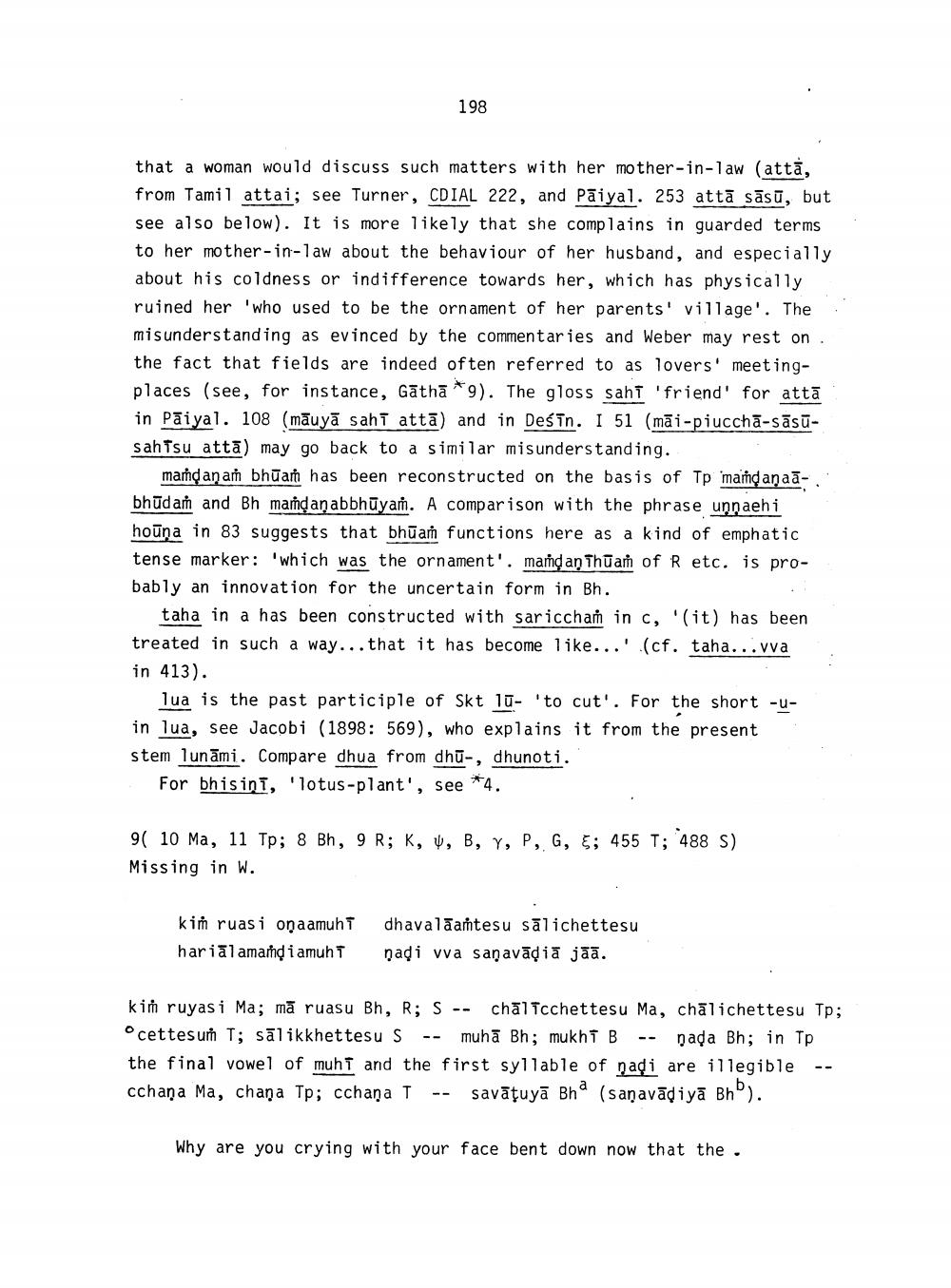________________
198
that a woman would discuss such matters with her mother-in-law (attă, from Tamil attai; see Turner, CDIAL 222, and Pāiyal. 253 attā sāsū, but see also below). It is more likely that she complains in guarded terms to her mother-in-law about the behaviour of her husband, and especially about his coldness or indifference towards her, which has physically ruined her 'who used to be the ornament of her parents' village'. The misunderstanding as evinced by the commentaries and Weber may rest on the fact that fields are indeed often referred to as lovers' meetingplaces (see, for instance, Gātha *9). The gloss saht 'friend' for attā in Pāiyal. 108 (māuyā sahs attā) and in Deśīn. I 51 (mā i-piuccha-sāsūsah Tsu attā) may go back to a similar misunderstanding.
mand an an bhūam has been reconstructed on the basis of Tp 'mand anabhūdam and Bh maid anabbhūyam. A comparison with the phrase unnaehi hoūņa in 83 suggests that bhūam functions here as a kind of emphatic tense marker: 'which was the ornament'. maíd an Thuaṁ of R etc. is probably an innovation for the uncertain form in Bh.
taha in a has been constructed with sariccham in c, '(it) has been treated in such a way... that it has become like...' (cf. taha...vva in 413).
lua is the past participle of Skt lū- 'to cut'. For the short -uin lua, see Jacobi (1898: 569), who explains it from the present stem lunāmi. Compare dhua from dhū-, dhunoti.
For bhisint, 'lotus-plant', see *4.
9( 10 Ma, 11 Tp; 8 Bh, 9 R; K, Ų, B, Y, P, G, 5; 455 T; 488 s) Missing in W.
kiñ ruasi onaamuhT hariālamand i amuht
dhavalāatesu sālichettesu nadi va saņavādia jāā.
kin ruyas i Ma; mā ruasu Bh, R; S -- chalTcchettesu Ma, chalichettesu Tp;
cettesum T; sālikkhettesu S -- muhā Bh; mukht B -- pada Bh; in Tp the final vowel of muht and the first syllable of nadi are illegible -- cchana Ma, chana Tp; cchana T -- savāțuyā Bh (saņavādiyā Bho).
Why are you crying with your face bent down now that the .




